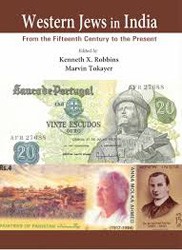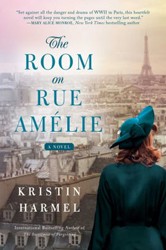Guesthouse for Ganesha is an unusual Holocaust novel; although this mystical tale begins in 1920s Poland, it ends in 1940s India.
The story unfolds with Esther Grünspan, left alone under the chuppah by her great love. This betrayal transforms a hopeful girl into a cold woman. She rejects her family and heritage, denying her past as she relocates to Germany. Esther’s incredible sewing skills provide her with a new life. She barters her services to learn German and builds a business in her quest for self-preservation. One evening, Esther sees an incongruous looking shack selling samosas. She briefly speaks to the Indian owner and is inexplicably drawn to a picture of Ganesha, the Hindu elephant-headed deity. She feels unexpected warmth and peace during this encounter that will change her life forever.
In fact, Esther’s story is narrated by Ganesha, the god of new beginnings, success, wisdom, and Remover of Obstacles. Ganesha’s words are seen in various forms, including italicized poetry, commentary, and asides. The god sees every human as a guesthouse for the spirit and provides for their needs. Ganesha’s whispers and attentions intercede to save Esther time and again on her harrowing journey.
After Esther enters a loveless marriage to the cobbler and has three children, she watches, with her “bitterness swelling,” as seeds of hate and terror grow throughout the 1930s. Aided by her practical skills, Esther and her young son survive by hiding in plain sight as they move throughout Europe. The historical backdrop of World War II is vividly captured throughout their flight, and her survival is ensured as she senses a presence she doesn’t fully comprehend.
Judith Teitelman’s debut novel asks the reader to believe in the journey. The descriptive language moves the plot in compelling and imaginative ways. The intertwining of Esther’s life on the run and her eventual self-realization in India is narrated with compassion. From the dreamlike prologue to the final epilogue, this is a powerful and absorbing read — a novel written with love in the spirit of healing and renewal.
Renita Last is a member of the Nassau Region of Hadassah’s Executive Board. She has coordinated the Film Forum Series for the Region and served as Programming and Health Coordinators and as a member of the Advocacy Committee.
She has volunteered as a docent at the Holocaust Memorial and Tolerance Center of Nassau County teaching the all- important lessons of the Holocaust and tolerance. A retired teacher of the Gifted and Talented, she loves participating in book clubs and writing projects.





